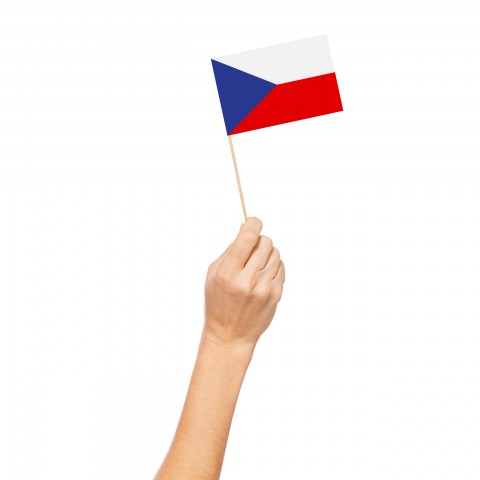
Ahhh, proverbs…those charming pieces of wisdom that add a nice ring (or a pitch of pathos) to any speech or article, and make you ultimately irritated in certain situations. Like right after you failed your adventurous challenge.
However, they’re also comforting. Knowing that people in the past have gone through the same stuff we’re dealing with now is encouraging. And that’s exactly how we should see proverbs: as little “hellos” from our ancestors, who created them as reflections of who we are and how we see the world, life, love, success…you name it.
This article about Czech proverbs and sayings will give you insight into not only the Czech language, but also the culture and mindset behind it. You might be surprised at how much proverbs vary from one country or culture to another.
Have you ever read or heard a Czech proverb? No? That’s okay…žádný učený z nebe nespadl (“no expert has ever fallen from the skies”). I hope that you’re a little confused and very curious now (and no, I did not get a stroke just now). I’m just giving you a little example.
In this article, I’ll explain the most common Czech proverbs in English. Let’s dive right into it!

Lépe pozdě než nikdy. / “Better late than never.”
 Table of Contents
Table of Contents
- Czech Proverbs About Money
- Motivational Czech Proverbs
- Czech Proverbs About Time
- Czech Proverbs About Attitude
- Czech Proverbs About Life
- Cool Czech Proverbs in English That Even Many Natives Don’t Understand
- How CzechClass101.com Helps You Learn Czech in a Fun Way
1. Czech Proverbs About Money
Believe it or not, there are plenty of Czech sayings out there on the topic of money. Here are just a few…
Odvážnému štěstí přeje.
- “Luck favors the brave ones.” / “Fortune sides with him who dares.”
This one is pretty straightforward, right?
Fun fact #1: This quote is actually from Virgil (the author of the Aeneid), but my nation seems to like it a lot.
Fun fact #2: Czechs aren’t the most courageous people in the world.
During the communist era (I’m going to repeat this a lot, bear with me), which ended “only” thirty years ago, it was much safer to keep quiet and remain unseen. Today’s kids are a whole different story, though: adventurous, ambitious, wordly.
Bez práce nejsou koláče.
- “Without work, there are no kolaches.”
No pain, no gain, guys. This one pairs great with…
Pečení holubi nelítají do pusy.
- “Baked pigeons don’t fly into your mouth.”
The Czech believe that if you want to achieve something, you have to hustle and work extra-hard. Every success has to be hard-earned. There have to be blood stains all over you.
Making money doing what you love? Pffft.
Making two dimes a week as a miner working twenty-hour shifts? Well done, buddy!
Czechs love their food, so don’t be surprised when you see them come up often in proverbs. Speaking of, what’s your favorite Czech food? And do you know how to order in a Czech restaurant?
Čas jsou peníze.
- “Time is money.”
The meaning of this one is pretty obvious: Don’t wait around if you could be making money instead.
Oh, just don’t talk about money in the Czech Republic. No figures. People might look at you funny if you ask them about their income, mortgage, debt, child support…just kidding.
However, there are some basic money-related Czech phrases that you’ll need for your everyday interactions. Check them out:
Zadarmo ani kuře nehrabe.
- “Chickens don’t dig for free.”
Knowing your worth and value sure is important. But this Czech proverb is more about…not doing stuff just out of the goodness of your heart.
Kdo šetří, má za tři.
- “Who keeps saving has more than three people combined.”
Okay, guys. I do agree it’s important to save some bucks for a rainy day, but saving can get out of hand too! Don’t forget that your happiness and well-being are way more important, so don’t deny yourself the opportunity to use your own money on stuff that makes you happy!
This proverb doesn’t apply to money exclusively, and it comes from the old dark times when people ate artificial “honey” and didn’t know when the local store would restock on toilet paper, so…they stocked up on it, and saved it. (True story.)

Sometimes, money CAN buy happiness.
2. Motivational Czech Proverbs
We could all use some motivation now and then, whether to lift our spirits…or to lift our bums off the sofa. Here are a few of the best Czech proverbs to do just that!
Co můžeš udělat dnes, neodkládej na zítřek.
- “Never put off till tomorrow what you can do today.”
If you want to do something, do it right away. Like… The last piece of cake in your fridge might as well be eaten tonight, don’t you think?
Malé ryby taky ryby.
- “Even small fish are fish.”
Here we go again: the communist era (you can learn more about the Czech history after WWII here). Here’s what I genuinely enjoy about my people—we can appreciate the little things in life. Even small victories count, you know?
Opakování matka moudrosti.
- “Repetition is the mother of wisdom.”
A.k.a. “Repetition is the mother of all learning.” If you want to create new neural paths, repeat the thing you want to learn until it becomes second nature.
S poctivostí nejdál dojdeš.
- “Honesty is the best policy.”
Being truthful is a virtue. Just don’t overdo it, please.
Last weekend, my grandma was being very honest and shrieked: “You look pregnant!”
I’m not pregnant.
Naděje umírá poslední.
- “Hope dies last.”
…for hope to even possibly die is for there to be nothing else left.
3. Czech Proverbs About Time
Time affects literally every aspect of our lives, so it should come as no surprise that there are a number of proverbs on the topic…
Nač stahovat kalhoty, když brod je ještě daleko?
- “Why put your pants down while the ford is still far away?”
As in: Everything in due time. Also, the proverb’s delicately hinting that you’re going to “use the bathroom” someplace safe near the ford.
By the way, before your trip to CZ, make sure you know how to ask where the nearest bathroom is—not a lot of people speak English!
Co se v mládí naučíš, ve stáří jako když najdeš.
- “What you have learned young you’ll find useful in the old.”
My grandma was probably taught to be extremely honest. Don’t be like grandma, and focus instead on learning skills that don’t traumatize other people, please.
Ráno moudřejší večera.
- “The morning is wiser than the evening.”
You know how sometimes you can’t sleep because your mind is racing, you get anxious, and everything seems so difficult and hopeless…and then in the morning you feel much better even though nothing has changed?
Or! Have you ever made a decision too fast and regretted it later?
These are great examples of what this proverb is referring to.
Don’t rush yourself. Sleep on it (literally or figuratively). Give yourself time to think things through. You’ll be wiser in the morning.
Ranní ptáče dál doskáče.
- “The early bird will hop further (gets the worm).”
No wonder all the billionaires and CEOs get up at four a.m., right?
It’s totally okay to sleep in, but if you get a head-start, you’ll get more done!
Starého psa novým kouskům nenaučíš.
- “You can’t teach an old dog to perform new tricks.”
My friend recently said this to me with a frustrated sigh and then took a sip of her wine.
Meaning: People who have been doing something a certain way for a very long time, most likely won’t change their routine just because you want to get married and move in together. Oh, the second part is totally just an example.
Trpělivost růže přináší.
- “Patience brings roses.”
And maybe, if you’re patient enough, he’ll finally produce a ring. Eventually. If you’re patient enough.
Okay, seriously. This proverb carries a message about “everything in due time.” So don’t try to rush things. Trust it will happen, and it’s yours.
4. Czech Proverbs About Attitude
They say that attitude is everything. But what exactly does that mean?
Zlost je špatný rádce. / Mluviti stříbro, mlčeti zlato.
- “Anger is a bad advisor.” / “Speaking is silver, silence is gold.”
These two proverbs urge us to be careful about what we say in anger, because people can’t unsee or unhear things. Next time you’re tempted to scream your lungs out or say something nasty, take a deep breath first.
Dobrá rada nad zlato.
- “Good advice is more valuable than gold.”
IMO, sometimes good advice even YIELDS gold.
Kdo jinému jámu kopá, sám do ní padá.
- “He who digs a hole for someone will fall in it himself.”
Karma’s a b*tch! Be nice and nice things will come to you. Dig holes and you’ll end up with both legs broken.
Darovanému koni na zuby nekoukej.
- “Don’t look a gift horse in the mouth.”
Accept gifts graciously, and don’t question their value. I mean…who doesn’t like free stuff, right?
- → Attitude and personality often go hand-in-hand. If you would like to learn how to describe your personality in Czech, see our list of adjectives and go through this lesson!

Darovanému koni na zuby nehleď.
5. Czech Proverbs About Life
We all want to live the best life possible, right? But it’s not always that easy. Here are some Czech proverbs that might help you, though!
Nehas, co tě nepálí.
- “Don’t fight a fire that’s not burning you.”
Mind your business. Did you know that Czechs are known for not giving an F? That’s why we often seem disinterested, cold, or rude (even though we’re dying to engage on the inside).
Sytý hladovému nevěří.
- “The sated/full doesn’t believe the hungry.”
If I told you that Czech is totally easy, and that if you’d started studying it a couple weeks ago, you should be fluent by now…would you believe me?
And if you told me that Czech is so hard, almost impossible to learn…would I believe you?
Now who’s the sated one?
Dvakrát měř, jednou řež.
- “Measure twice, cut once.”
The meaning of this one is obvious. Be careful and do all the preparations carefully. (Sometimes it’s called procrastination.)
Co zaseješ, to sklidíš.
- “You reap what you sow.”
Ever heard about karma?
Pes, který štěká, nekouše.
- “A dog that barks doesn’t bite.” / “Someone who makes threats all the time seldom carries out the threats.”
Except for the angry, tiny dogs—those always bite!
The actual meaning of this proverb is: Even if something seems intimidating/scary/too much/too loud, don’t get put off or scared. It’s likely just a facade.
Kdo uteče, vyhraje.
- “He who runs away, wins.”
Sometimes, it’s wiser to give up and walk away from a situation if you think you can’t win.
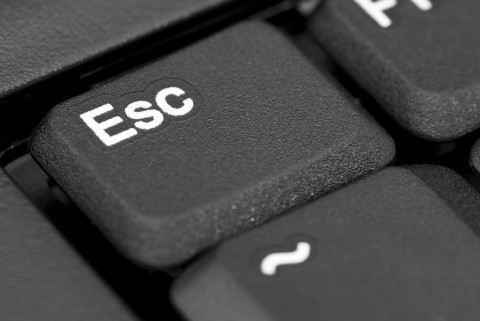
Kdo uteče, vyhraje.
6. Cool Czech Proverbs in English That Even Many Natives Don’t Understand
…but really, who understands all the proverbs in their language?
Jednou za Uherský rok.
- “Once in a Hungarian moon.”
This is equivalent to “once in a blue moon” or “very rarely.” Nobody knows what Hungary has to do with it.
Házet flintu do žita.
- “Throwing your rifle in the rye.”
To throw in the towel, especially after a long fight that seemed to be going nowhere.
Má máslo na hlavě.
- “He has butter on his head.”
This refers to when someone is hiding a lot of secrets (very obvious things) that everybody knows about (a.k.a. “has skeletons in his closet”).
Why butter? Who knows! We like butter. Butter is life. Butter is the Czech cream cheese and peanut butter in one.
V noci je každá kočka černá.
- “Every cat is black at night.”
When you can’t see things clearly, everything might seem the same to you.
Nedráždi hada bosou nohou.
- “Don’t pat a snake with bare feet.”
A.k.a. “walking into the lion’s den.” It’s a fun phrase, considering there are basically no venomous snakes in the country.

Don’t pat a snake with bare feet!
7. How CzechClass101.com Helps You Learn Czech in a Fun Way
I hope you enjoyed this article and learned something new! Which of these Czech proverbs can you most relate to?
If you’re taking your Czech studies seriously, you basically have two options: grab a Czech grammar book or learn online (the latter of which is way more convenient).
CzechClass101.com makes learning Czech easy, exciting, and fun. With us, it’s not about endless memorizing or thick textbooks. Learn Czech with us and make progress faster than you could imagine!
What can you find here?
- English-to-Czech translation and pronunciation tips/tricks
- Over 630 audio and video lessons
- Vocabulary learning tools
- Spaced repetition flashcards
- Detailed PDF lesson notes
Sign up now—it’s free!
One last thing: Let us know in the comments if this article helped you. Let’s get in touch!



























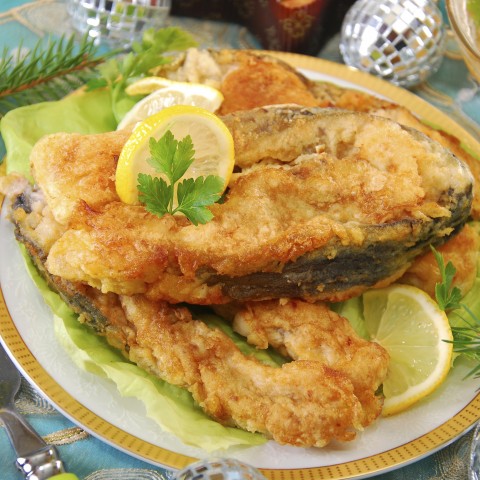


 Table of Contents
Table of Contents

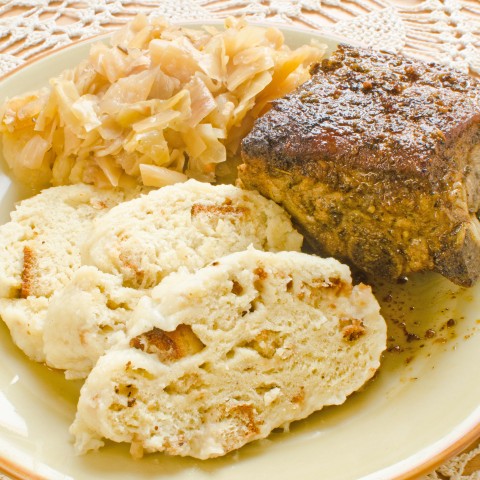
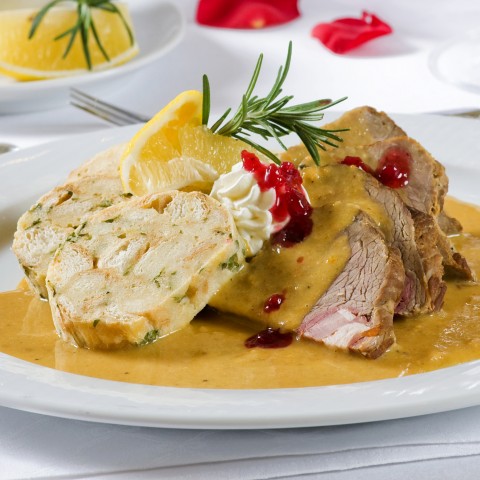
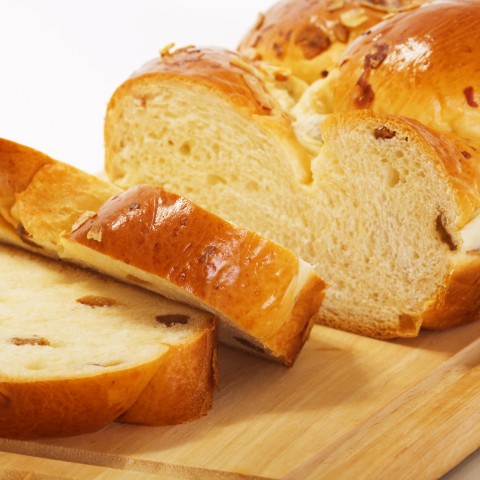











 Table of Contents
Table of Contents














